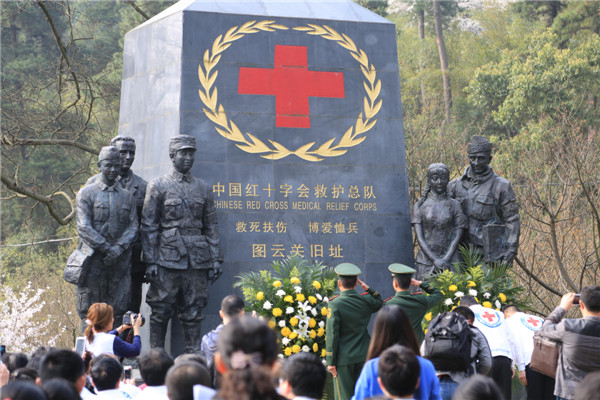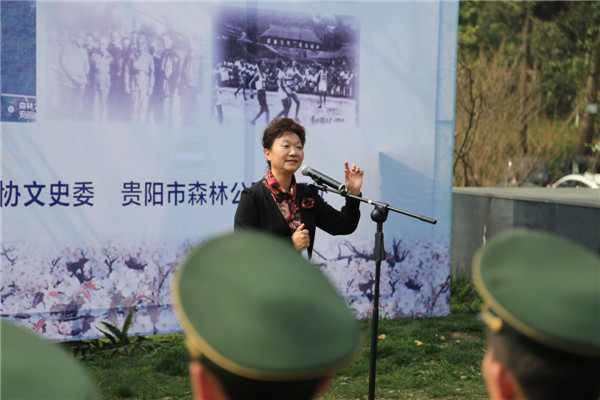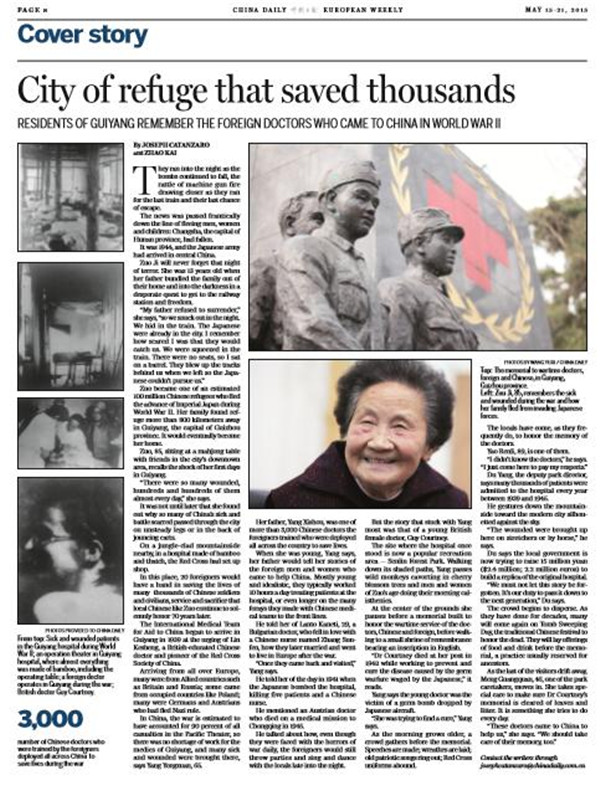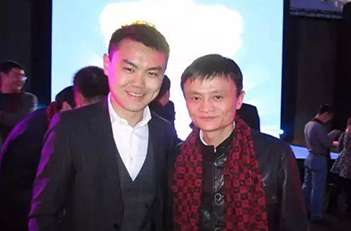Foreign doctors' selfless wartime help remembered
By Yang Jun (chinadaily.com.cn) Updated: 2015-06-09 10:40
 |
|
On Tomb Sweeping Day, the traditional Chinese festival honoring the dead, residents of Guiyang remember foreign doctors who helped China during World War II. Photo by Yang Jun |
In the forest park of Tuyun Pass in Guiyang, capital of Southwestern China’s Guizhou province, can be found a monument to foreign doctors who offered altruistic help to China during World War II.
Members of the International Medical Team for Aid to China began arriving in Guiyang in 1939. Lin Kesheng, a British-educated Chinese doctor and pioneer of the Red Cross Society of China, was one of them.
Arriving from all over Europe, many were from Allied countries such as Britain and Russia; some came from occupied countries such as Poland; many were Germans and Austrians who had fled Nazi rule.
On a jungle-clad mountainside near Tuyun Pass, in a hospital made from bamboo and thatch, the Red Cross headquarters was set up. In the following five years, 20 foreign doctors, together with their Chinese counterparts, saved the lives of many thousands of Chinese soldiers and civilians.
Besides saving the sick and wounded, the International Medical Team for Aid to China also trained Chinese doctors, said Yang Yongxuan, 65. Her father, Yang Xishou, was one of more than 3,000 Chinese doctors the foreigners trained who were deployed across the country.
When she was young, Yang says, her father would tell her stories of the foreign men and women who came to help China. Mostly young and idealistic, they typically worked 10 hours a day treating patients at the hospital, or even longer on the many forays they made with Chinese medical teams to the front line.
Yang’s father also shared with her anecdotes of those foreign doctors. He told her of Lanto Kaneti, 29, a Bulgarian doctor, who fell in love with a Chinese nurse named Zhang Sunfen, how they later married and went to live in Europe after the war. Yang hopes the couple would come back to visit Tuyun Pass.
 |
|
Yang Yongxuan shares stories of foreign doctors in wartime Tuyun Pass with soldiers. Photo by Yang Jun |
Yang’s father also told her of the day in 1941 when the Japanese bombed the hospital, killing five patients and a Chinese nurse. He mentioned an Austrian doctor who died on a medical mission to Chongqing in 1945.
He talked about how, even though they were faced with the horrors of war daily, foreign doctors would still sing and dance with the locals late into the night. They held a positive attitude towards life even during wartime.
Many local seniors, who were refugees, are still deeply impressed by those foreign doctors during the war.
Zuo Ji was one of an estimated 100 million Chinese refugees who fled the advance of Imperial Japan during World War II. Her family found refuge more than 800 kilometers away in Guiyang. It would eventually become her home.
"There were so many wounded, hundreds and hundreds of them almost every day," she says. Zuo, 85, recalls the shock of her first days in Guiyang. It was not until later that she found out why so many of China's sick and battle-scarred passed through the city on unsteady legs or in the back of carts.
It was 1944, and the Japanese army had arrived in central China. They ran into the night as bombs continued to fall, the rattle of machine gun fire drawing closer as they ran for the last train and their final chance of escape.
"My father refused to surrender," she says, "so we snuck out in the night. We hid in the train. The Japanese were already in the city. I remember how scared I was that they would catch us. We were squeezed in the train. There were no seats, so I sat on a barrel. They blew up the tracks behind us when we left so the Japanese couldn't pursue us."
Zuo Ji will never forget that night of terror. She was 13 years old when her father bundled the family out of their home and into the darkness in a desperate quest to get to the railway station and freedom.
Du Yang, the deputy park director, says many thousands of patients were admitted to the hospital at Tuyun Pass every year between 1939 and 1945. "The wounded were brought up here on stretchers or by horse," he said.
The site where the hospital once stood is now a popular recreation area – a picturesque forest park.
At the center of the grounds Yang pauses before the memorial built to honor the wartime service of the doctors, Chinese and foreign, before walking to a small shrine of remembrance bearing an inscription in English.
"Dr Courtney died at her post in 1942 while working to prevent and cure the disease caused by the germ warfare waged by the Japanese," it reads.
"She was trying to find a cure," Yang said.
 |
|
China Daily foreign expert Joseph Catanzaro contributes a report about wartime Tuyun Pass. |
She added that Courtney was the victim of a germ bomb dropped by Japanese aircraft, and the story that stuck with Yang most was that of this young British female doctor.
The locals came, as they frequently do, to honor the memory of those foreign doctors.
Yao Renli, 89, is one of them.
"I didn't know the doctors," he said. "I just come here to pay my respects."
Du says the local government is now trying to raise money to build a replica of the original hospital and showcase the documents of those foreign doctors.
"We must not let this story be forgotten. It's our duty to pass it down to the next generation," Du said.
After a documentary about the foreign doctors was released by China Daily Website, page views between April 3 and 20 topped more than 180,000 in Chinese and in English more than 120,000. The documentary also won wide attention on social networking sites such as Facebook and Twitter.
Netizen Jasmine Marrison left an online message that: “This documentary is moving, and I pay more tribute to those warriors!”
AaronMah said: “To those heroes!” JoeUtman said: “Thanks to this great documentary, I know more of the International Medical Team for Aid to China’s great contributions.”











